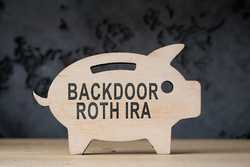- Readily available in 401(k)s or similar retirement plans.
- Often have lower expense ratios than actively managed mutual funds.
- Usually more tax efficient than actively managed mutual funds.
ETFs vs. Index Funds: Which Are Better?

Our evaluations and opinions are not influenced by our advertising relationships, but we may earn a commission from our partners’ links. This content is created by TIME Stamped, under TIME’s direction and produced in accordance with TIME’s editorial guidelines and overseen by TIME’s editorial staff. Learn more about it.
Exchange-traded funds (ETFs) and index funds are different types of investments, but they have similarities. In fact, most ETFs could be considered index funds, in that they track a stock or bond index such as the S&P 500, Russell 2000, NASDAQ, and others. However, the term “index fund” usually refers to a type of mutual fund, not an ETF, that also follows a market index. We’ll call them “index mutual funds” for the purposes of this article.
A key difference between an ETF and an index mutual fund is in the way they are bought and sold. ETFs are traded just like stocks, during the trading day while the markets are open, while mutual fund orders can be submitted during the trading day but aren’t actually completed until after the markets close.
INVESTMENT AND INSURANCE PRODUCTS ARE: NOT A DEPOSIT • NOT FDIC INSURED • NO BANK GUARANTEE • MAY LOSE VALUE
There are several differences between ETFs and index mutual funds.
| Characteristic | ETFs | Index mutual funds |
|---|---|---|
Trading rules | Traded during the trading day | Transactions executed at the close of the trading day |
Minimum investment amounts | Can purchase a single share and in some cases fractional shares | Often has a minimum investment amount, such as $500, $1,000, or $3,000 |
Tax efficiency | Generally more tax efficient than mutual funds | Generally less tax efficient than ETFs due to their structure |
401(k) eligibility | Rarely available in 401(k) plans | Frequently offered in 401(k) plans |
Fractional shares | Generally traded as whole shares (though some online brokers trade fractional shares) | Can be traded as fractional shares (as they are purchased by dollar amount) |
Index mutual funds invest passively with the goal of tracking a specific market index. Unlike actively managed mutual funds, where the fund manager buys and sells underlying investments in an effort to outperform the market, the job of an index mutual fund manager is to replicate the holdings and the performance of the fund’s underlying index to the greatest extent possible.
ETFs are similar to index mutual funds in that many are essentially index funds that track a market index. The main difference is that ETFs trade during the business day in the same way as shares of individual stocks. This means that instead of waiting until the end of the trading day to have your buy or sell transaction executed, as with an index mutual fund, you can buy or sell an ETF at any point during the trading day for the prevailing share price at that time.
ETFs and index mutual funds have much in common. While not all ETFs track an index, most do. Some commonalities for those that do include:
ETFs can offer the following advantages over index mutual funds:
Robo-advisors, such as M1 Finance or TradeStation, often use ETFs in their investing algorithms for their clients.
An index mutual fund may be a better choice than an ETF in the following situations:
Not all ETFs follow a passive index investment strategy. For example, sector ETFs invest in the stocks of specific industries. Several major ETF providers, including State Street Global Advisors and Vanguard, offer a number of sector ETFs in the following industries:
Sector ETFs make it possible to invest in an entire industry within a single ETF. They may consist of all of the domestic stocks or a basket of global stocks in a particular sector. They are a solid option for an investor who wants to own the shares of several companies in a specific industry without buying individual shares.
ETFs and index mutual funds can be excellent ways to build and diversify a portfolio. Both can be low in cost, and there are probably more similarities than differences. You can mix them in the same investment portfolio, though employer-sponsored retirement plans often don’t allow ETFs. Which one makes sense for you will depend on your situation and how you invest.
If you’re unsure, try consulting with a financial advisor. If you’re comfortable managing your own investments, consider JP Morgan’s self-directed investing options.
INVESTMENT AND INSURANCE PRODUCTS ARE: NOT A DEPOSIT • NOT FDIC INSURED • NO BANK GUARANTEE • MAY LOSE VALUE
ETFs are not necessarily more or less risky than index mutual funds. It depends on the makeup of the specific funds you are comparing. If you have an ETF and an index mutual fund that track the same index, the risk level of the two funds should be roughly the same.
A Roth IRA is neither an index mutual fund nor an ETF: It’s a retirement account. ETFs and index funds are investments that could be held inside of a Roth IRA as part of your investment strategy for that account.
The information presented here is created by TIME Stamped and overseen by TIME editorial staff. To learn more, see our About Us page.




